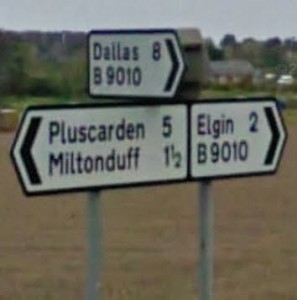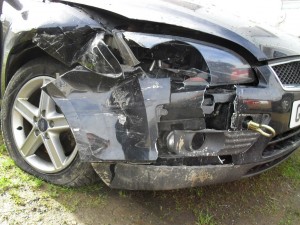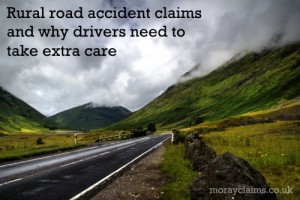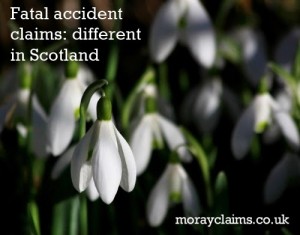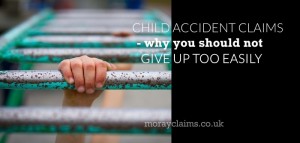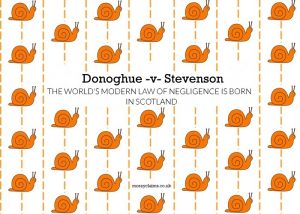Accidents do not take any notice of national boundaries. An accident can happen whether you are in Dallas, Moray, or Dallas, Texas. If you have been injured in an accident and need to make a claim for compensation, we recommend that you contact a solicitor with proven specialist knowledge in personal injury claims. We also suggest that you should deal with a solicitor who is local to you, if possible. For accidents which have happened in Scotland, does it matter whether your solicitor is in Scotland? It does matter and we will explain why. When a local-to-you solicitor can be a bad idea Where you suffer injury in a road traffic accident in Scotland, you might be on holiday or on business at the time. You may have your home in another part of the UK. It can be tempting in that situation to consult a solicitor close to where you live, once you are sufficiently recovered, because it is the most convenient option. The solicitor you consult will be reluctant to Continue Reading
Bus Passenger Accidents While Getting Onto A Bus And How To Avoid Them
I commute most days to work by bus and am lucky that the most serious ‘accidents’ I have had to date have both affected my clothes only. Knee Slicers and Sticky Chocolate Seating Leg-room is not always great, depending on where you sit on the bus. I once managed to make a neat straight cut through the knee of one trouser leg on the horizontal metal strip on the back of the seat in front of me. More embarrassing was sitting down on a seat which someone had smeared with chocolate sauce. I only realised when I had difficulty standing up to get off at my stop. I’ve learned from that experience to wear jeans on the bus and change into a suit once I get to the office. Bus Timetabling Problems Buses and coaches usually operate according to timetables. Bus drivers have to do their best to keep things running on time. This is a difficult job when there are so many variables. These include things like: how much traffic there is on the road; how many passengers want picked Continue Reading
If someone runs into the back of you, is it always their fault?
Rear-end collisions are usually blamed on the driver behind — but there are rare situations where responsibility can be shared. The general rule is that, if you run into the back of another vehicle, you will usually be held at fault and will not be able to claim against the driver in front. This is because drivers are expected to leave enough space to stop safely if traffic ahead slows or stops unexpectedly. This law seems to be generally well understood. What if the driver in front behaved unreasonably? Many people assume sudden or unexpected braking automatically shifts blame — in most cases, it doesn’t. From time to time, we get enquiries from people who have rear-ended another vehicle but consider that the accident was not their fault because the driver in front stopped their vehicle suddenly or without good reason. An example of this is where you are second in the queue at a T-junction and you and the car in front are both turning left. You can see there is Continue Reading
Winter driving means an increased risk of accidents: what steps should you take?
Wintry weather is persisting into March around the Moray Firth. Inevitably, in winter, there tends to be an increase in road traffic accidents. At this time of year, we are more likely to be driving in the dark and on roads affected by snow and ice. Repeated freezing and thawing also increases the number and size of potholes in the roads. What steps can you take? Equipment to carry in your vehicle The Royal Society for the Prevention of Accidents (RoSPA) recommends certain basic safety equipment to keep in your vehicle at all times, so you are prepared if the weather deteriorates. This should include a towrope, de-icing equipment, a spare wheel, a torch, a first aid kit and a warm blanket. Checks on the vehicle itself In addition, you should check that your vehicle itself is properly prepared for winter conditions. Check your tyre pressure regularly and ensure that you have sufficient tyre tread as this will reduce the risk of loss of traction and skidding (as well as improving Continue Reading
Rural Road Accident Claims and Why Drivers Need to Take Extra Care
Rural roads account for over 70% of fatal accidents, according to statistics published by RoSPA. In Scotland, trunk roads, such as the A9 and A96, are maintained by independent companies but more minor roads are the responsibility of local authorities. Of course, the more minor roads tend to have a greater amount of bends and ups and downs. The increased dangers for drivers are obvious: whether it’s from other traffic, such as slow-moving farm vehicles, or from the state of the road itself. Roads authorities can rarely be blamed for accidents A Court of Session decision from June 2012 – arising out of a tragic accident in North-east Scotland - has provided a reminder of the considerable limitations on local authorities’ duties and the emphasis that is placed on the personal responsibility of the individual driver. In these cash-strapped times, the duties the law imposes on local authorities to maintain road markings and signage are not likely to increase in the foreseeable Continue Reading
Fatal Accident Claims: Different in Scotland
On 16 July 2009, Peter McGee fell down the stairs at his home in Springburn, Glasgow. Two days later, he died in hospital as a result of complications from his injuries. His wife, Catherine, and other family members raised an action in the Court of Session against RJK Building Services Ltd, who had carried out joinery work at the property on the instructions of Glasgow City Council, Mr and Mrs McGee’s landlords. In an Opinion issued on 18 January 2013, Lord Drummond Young found that RJK were to blame for Mr McGee’s injuries and death because they had been negligent in the way they fitted a handrail on the stairs. The handrail had come loose from the wall as Mr McGee descended the stairs, causing him to fall. A lengthy marriage At the time of his death, Mr McGee was 71 years old. His wife was a few months younger than him. They had been married for 36 years. An area of personal injury law where Scotland is different Personal injury law is applied identically or Continue Reading
Child accidents: why it can be a bad idea to prejudge your chances of success
If you have been injured in an accident and you think it was partly or wholly your fault, it might discourage you from making a claim at all. You need to remember that negligence is a legal concept. Injured people who think they are legally to blame for the accident which caused their injuries are often wrong. It is always worth getting legal advice from a specialist personal injury solicitor. Where the injured person is a child, often it can appear that they have been foolhardy in their behaviour. Cases in which children have climbed onto things and fallen or otherwise hurt themselves are nothing new to the law. In a case from the year 2000, the eminent judge, Lord Hoffman, pointed out that the law appreciates that the ingenuity of children “in finding unexpected ways of doing mischief to themselves and others should never be underestimated”. Lisa Wardle made a claim against Scottish Borders Council on behalf of her nine-year-old daughter. This was after her daughter fell Continue Reading
Donoghue –v- Stevenson: the world’s modern law of negligence is born in Scotland
If you have an accident claim in Scotland, it is covered by the Law of Delict. In England, it is known as the Law of Torts. The modern law of Delict – covering the duties people owe to others not to cause them injury - can be traced to a particular case, arising from an incident which occurred in Paisley on Sunday, 26 August 1928. The case of Donoghue –v- Stevenson is widely known in legal circles, not just in Scotland and the UK but throughout the world, as the source of the modern law of negligence. A night out in Paisley On the evening in question, May Donoghue, at that time a 30-year-old shop assistant, boarded a tram in Glasgow for the thirty-minute journey to Paisley. At around 8.50pm, she and a female friend took their seats in the Wellmeadow Café in Paisley’s Wellmeadow Place. The café owner, Francis Minchella, took the order and May's friend ordered, and paid for, a pear and ice, and an ice-cream 'float'. Mr Minchella brought the order and poured part of Continue Reading
